12 Surprising Takeaways of the Freelance Writers Survey
What’s the difference between the freelance writers who are earning a living, and the freelance writers who aren’t?
That’s what I wanted to know when I launched this freelance writers survey. What habits, skills, and connections do “successful” writers have the “unsuccessful” writers don’t?
I found out – and the results were surprising.
But first, we have to define what a “successful” freelance writer is.
This may not be the perfect measurement, but I’m defining it here as how much the freelancers said they earn per hour.
Thanks to the answers from 1,302 freelancers, I can break the responses from this survey into three groups:
• Low earners: Freelancers earning less than $15 per hour
362 of the 1302 freelancers surveyed fall into this group
• Medium earners: Freelancers earning $15-$45 per hour
573 of the 1302 freelancers surveyed fall into this group
• High earners: Freelancers earning more than $45 per hour
367 of the 1302 freelancers surveyed fall into this group
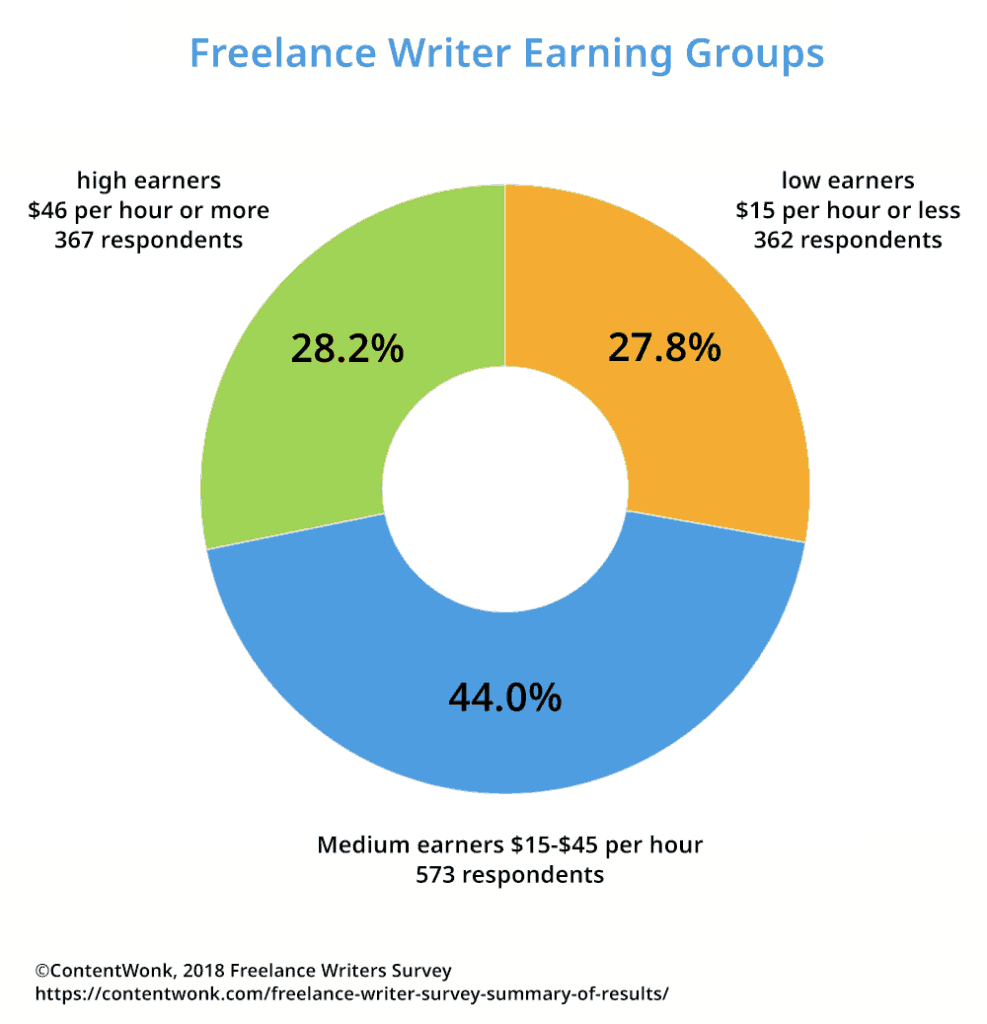
The full report of the freelance writers survey compares the answers of these three groups in detail and looks at the overall trends the freelancers reported. This post is just to give you the key takeaways on how high earners differ from low earners.
So here are the major differences between the writers earning over $45 per hour and the writers earning less than $15 per hour:
1. How much recurring work they have.
Low earners are seven times as likely to say they get “no recurring work” as high earners are. This may be one of the strongest determinants between who earns a living and who doesn’t.
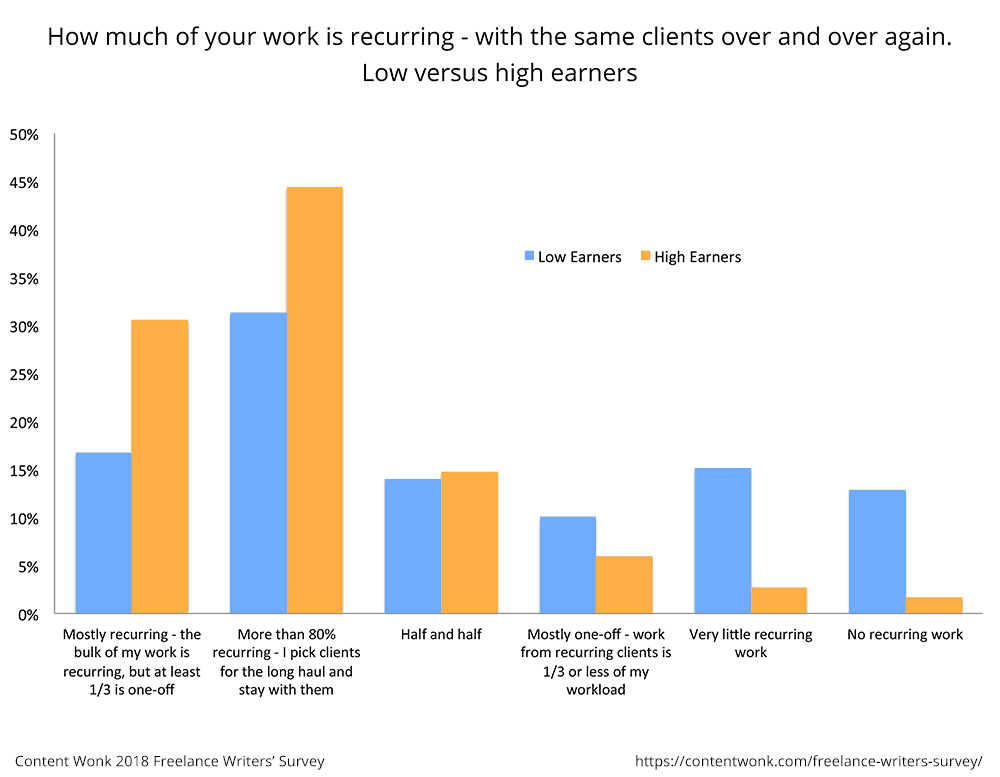
2. How long they’ve been doing freelance writing.
Experience counts, right? It sure seems to.
High earners are six times more likely to have been writing professionally for 10 years or more. 54% of them have been writing for more than 10 years. 19% of them have written for between five and ten years.
It’s a different story for new freelance writers. They tend to be in the low earner group for the first few years. Then around years three to five, some will move into the high earners group, while some continue to be low earners indefinitely.
Some writers do break into the high earner category in their first year…. but only 4% make that hurdle. In other words, only one out of 25 freelance writers is clearing $45 an hour in their first year.
Ouch.
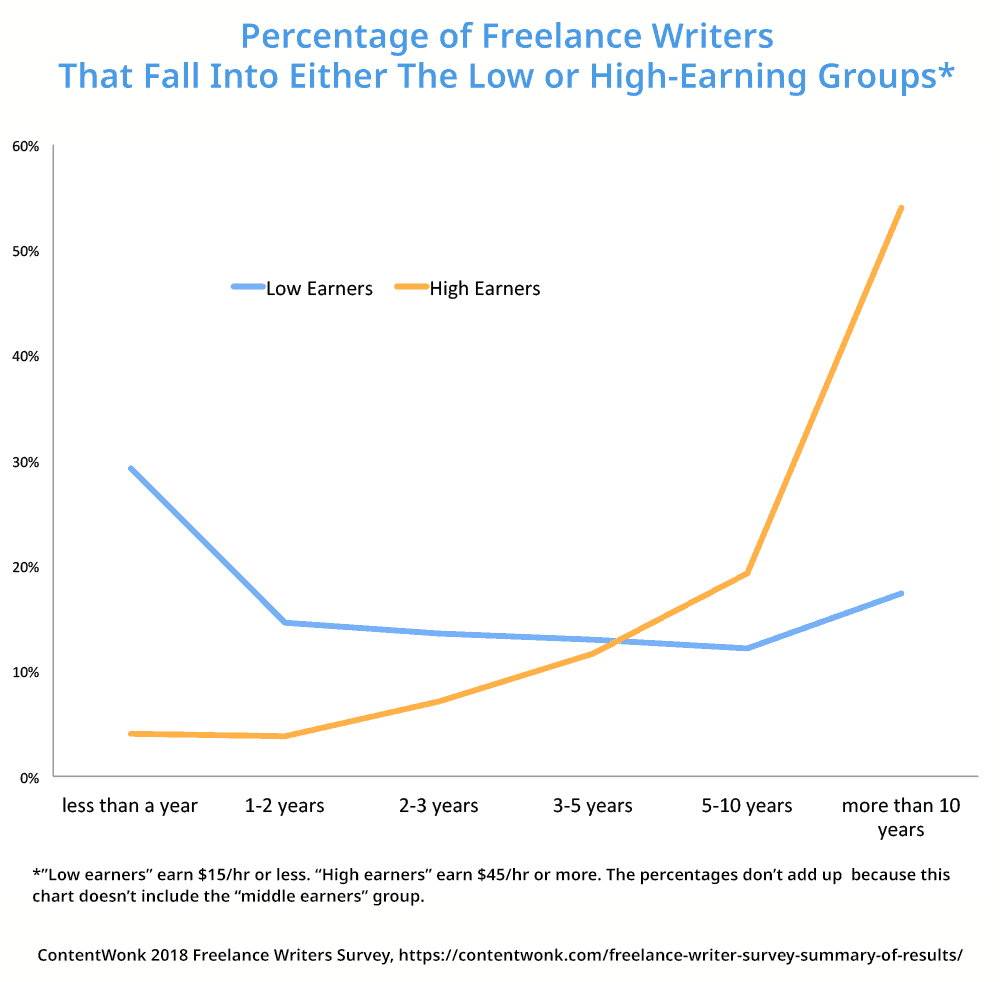
3. What type of clients they have.
The freelance writers survey revealed that high earners are nearly six times as likely to work with larger companies than low earners. They’re also more than three times as likely to work with agencies.
Not too surprisingly, low earners are more than five times as likely to work with content mills than high earners are.
But when it comes to content services – the types that pay at least 15 cents per word – low earners are just as likely to work for them as high earners are. This reflects what we’ll see in another chart below about where writers get their work. It appears that some freelance writers are actually doing fairly well with content services, provided the content service is more boutique/high-end.
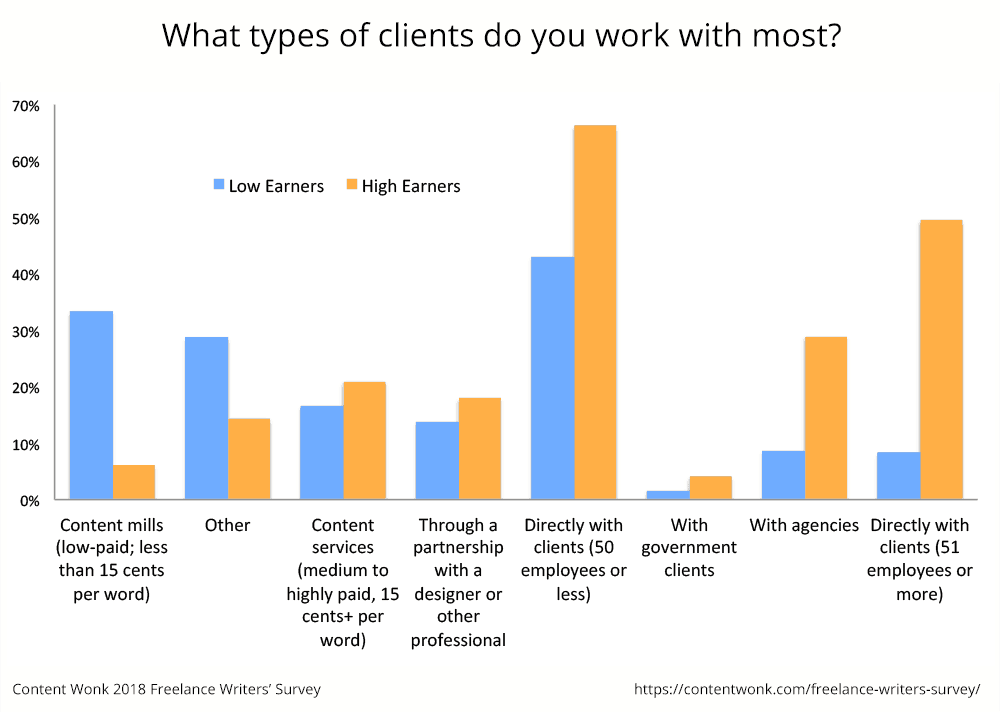
4. How much time they spend doing paid writing every week.
Many of the writers who took the freelancer writers survey said they would like to do more freelancing. And it might be a good idea. Especially if you’re writing less than one day a week. Freelance writers who write less than 8 hours a week are more than twice as likely to be in the low earners group.
But there is good news. If you can manage to write more than 8 hours a week, you’re equally likely to be in the high earners group. And if you can cram in more than 21 hours of paid writing a week, you become three times more likely to be among the high earners.
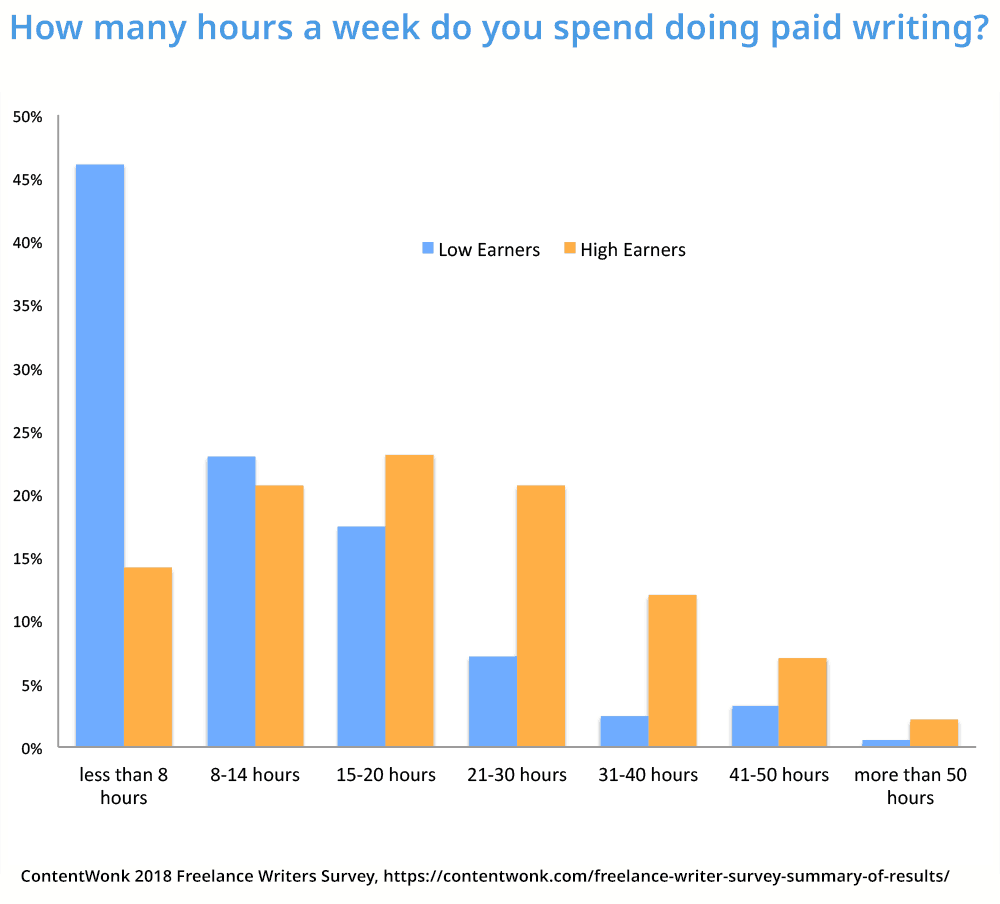
5. Where they get work.
Want to get more work – and more high-paying work? Boost your personal network and get more client referrals. They are clearly the best way to ensure you make a living.
Visibility on major writing platforms also appears to help. As does using bylined, paid work to attract more clients. And let’s give a hat-tip to those content agencies and boutique content providers. Some writers do well with them.
That’s especially true if you compare the boutiques to Upwork, WriterAccess and similar platforms. Low earners are nearly three times as likely to say they get work from these platforms as high earners do.
The difference in who gets work from social media is also interesting. Sure, some high earners find work on social media, but it’s more a practice of low earners than high earners.
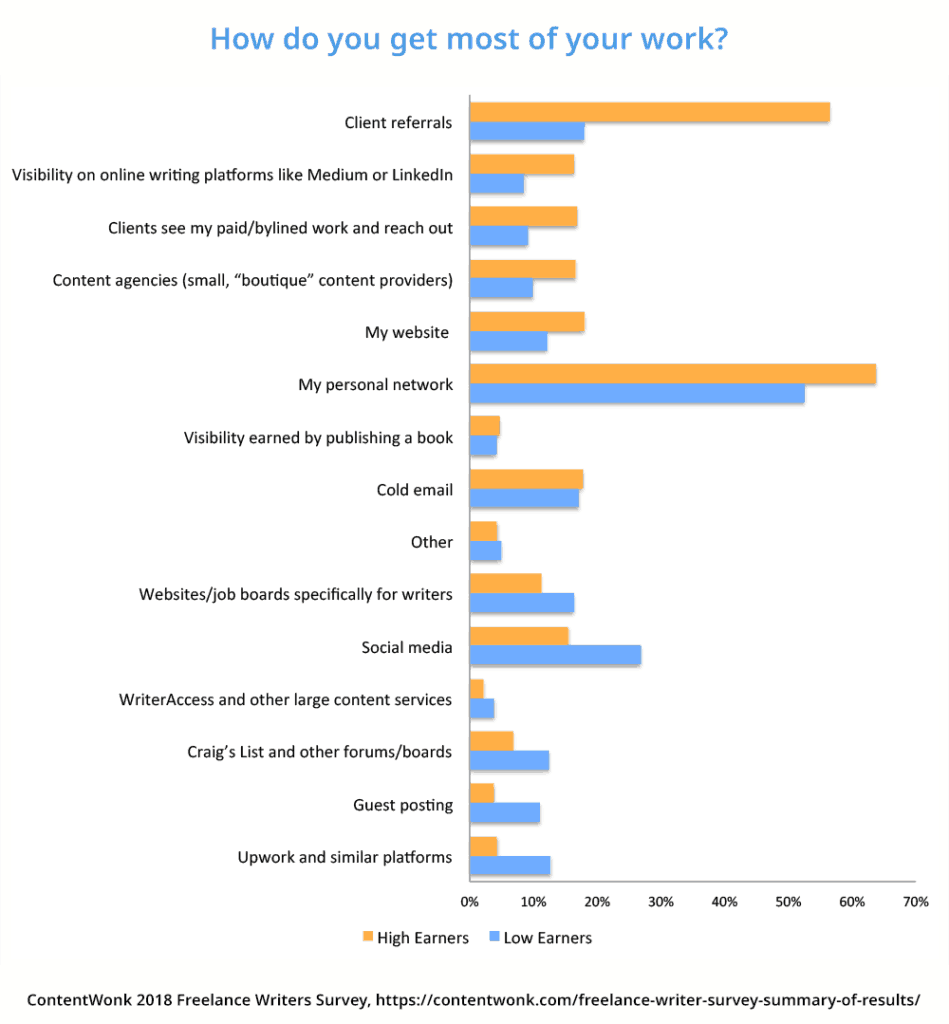
Given these responses, you might want to skip guest posting. Very few high earners – less than 5% – get good client work from guest posts. Instead, post your work on LinkedIn or to high-end writing platform sites like Medium.
And finally, fight for those bylines. They do attract clients.
What doesn’t make a difference in freelance writing
Freelance writers get a lot of advice about how to earn a better living. Most of it makes sense, but if you look at what the data from the freelance writers survey shows, some of the advice we’ve been getting over the years doesn’t actually make any difference.
For me, this was the most surprising part of the survey – the things I thought freelance writers had to have or do, but that actually don’t make much difference when it comes to what they earn.
Having a website does not have a huge impact.
Roughly third of low earners don’t have websites, compared to a quarter of high earners who don’t have them.
There are indeed differences between the two groups, but they’re not very large. Incredibly, having or not having a website does not make a major difference in how much you earn.
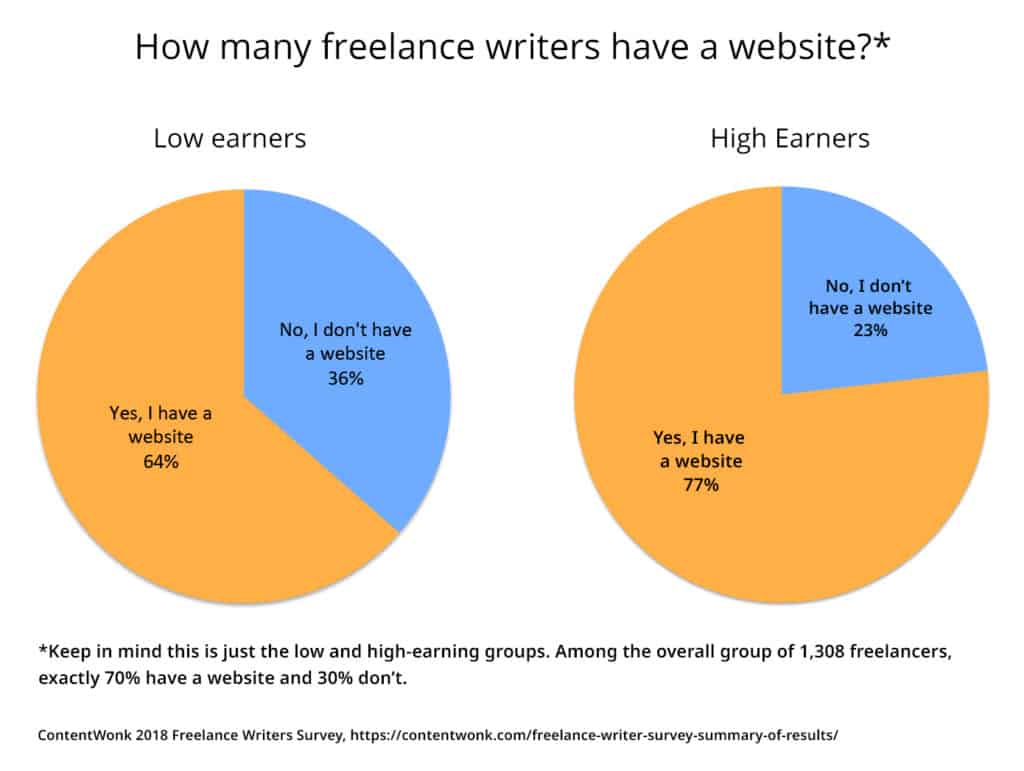
2. The type of writing they do.
If you’ve been listening to freelance writing advice for any amount of time, you’ve probably heard that case studies and white papers are high-profit work. And given what the freelance writers survey found, that’s true. High earners are much more likely to write in those formats.
What’s interesting is how similar the two groups are for blog posts and web copy. Both high earners and low earners are about equally likely to do blog posts and web content/copy, and they do them for the bulk of their work.
This is good news for any low earners writing in these formats. You could raise your prices for blog posts and web copy, as many of your peers are earning significantly more for very similar work.
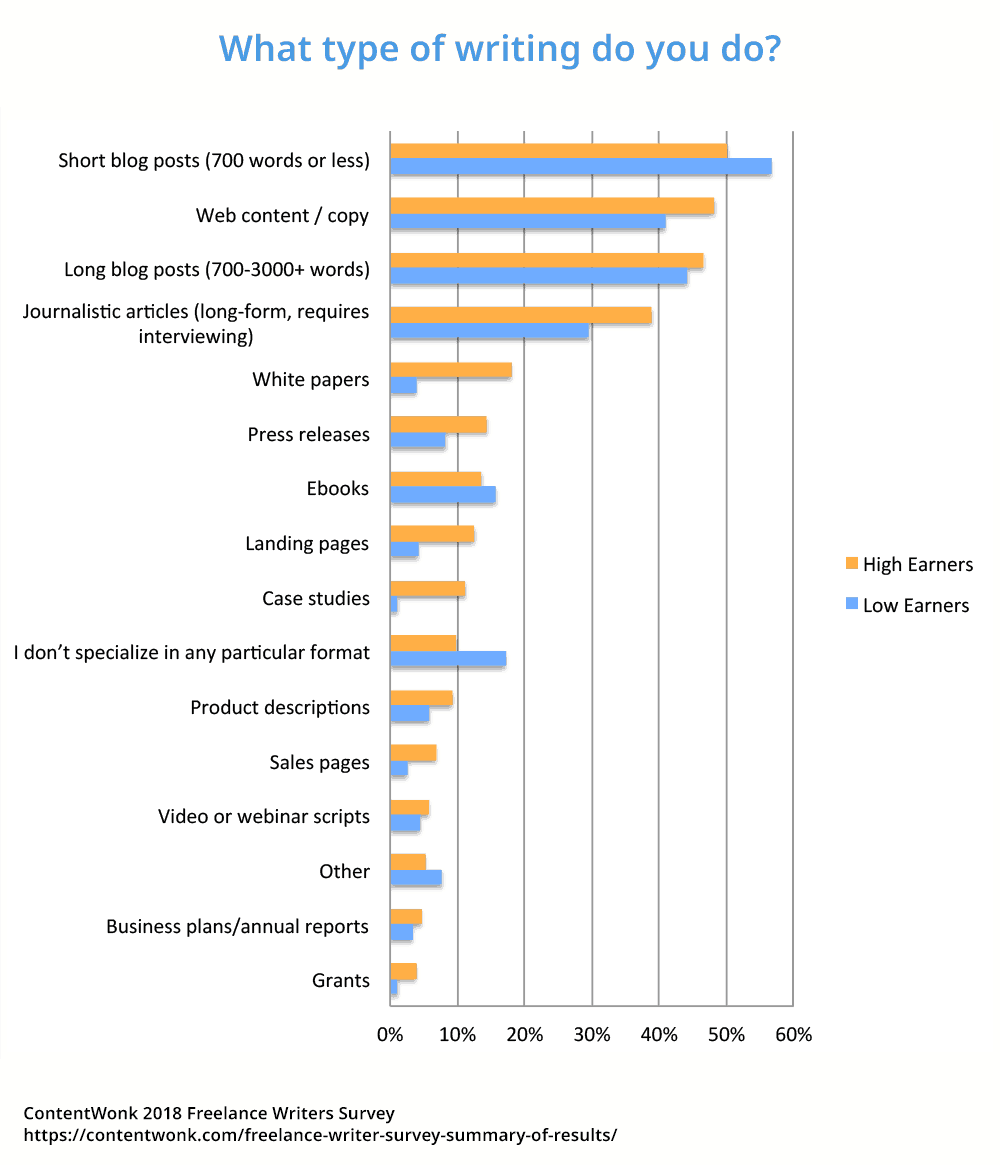
3. How much time they spend managing their business.
If you spend a lot of time promoting yourself and managing your business, you’re more likely to be successful, right?
Not so. Incredibly, there is no statistical difference between high and low earners when it comes to how much time they spend managing their business according to the freelance writers survey. (Though it is possible that the high earners are outsourcing some business management, as they can afford to.)
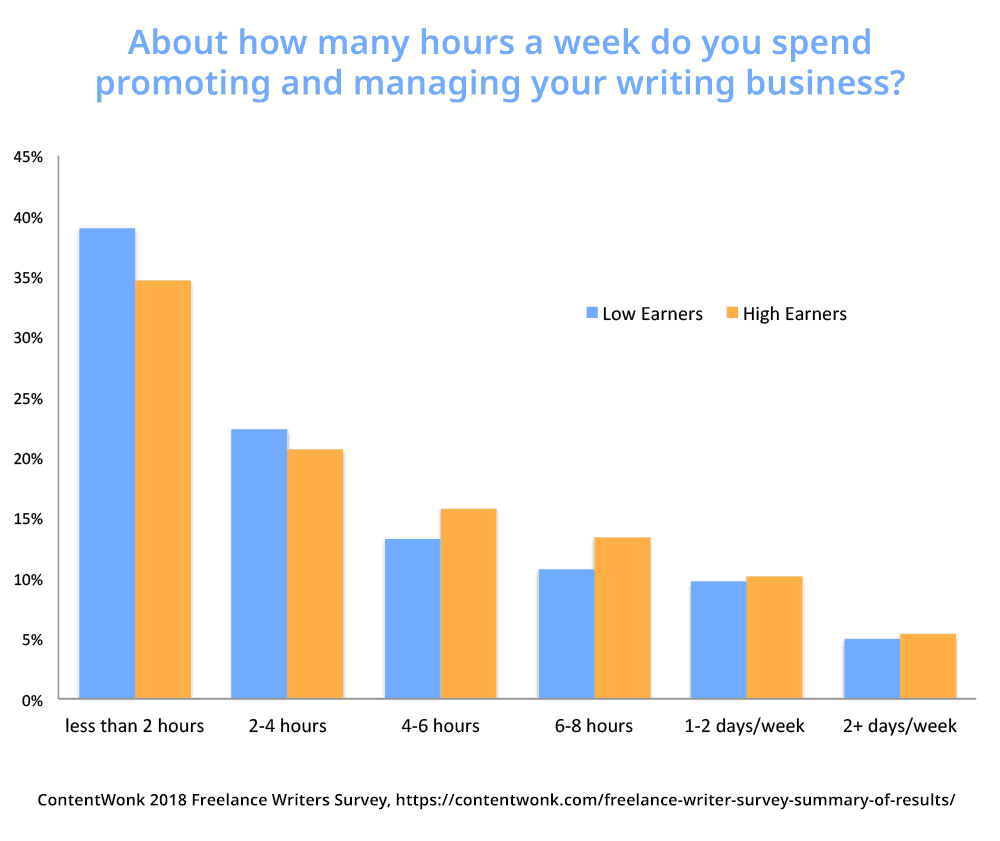
4. Specializing in a particular niche does not make that much difference.
This one really surprised me. I had assumed that subject experts would command higher rates, or that they would at least work more efficiently so they’d earn more per hour.
Nope. There is really no significant difference between high and low earners based on whether they specialize in one subject or not.
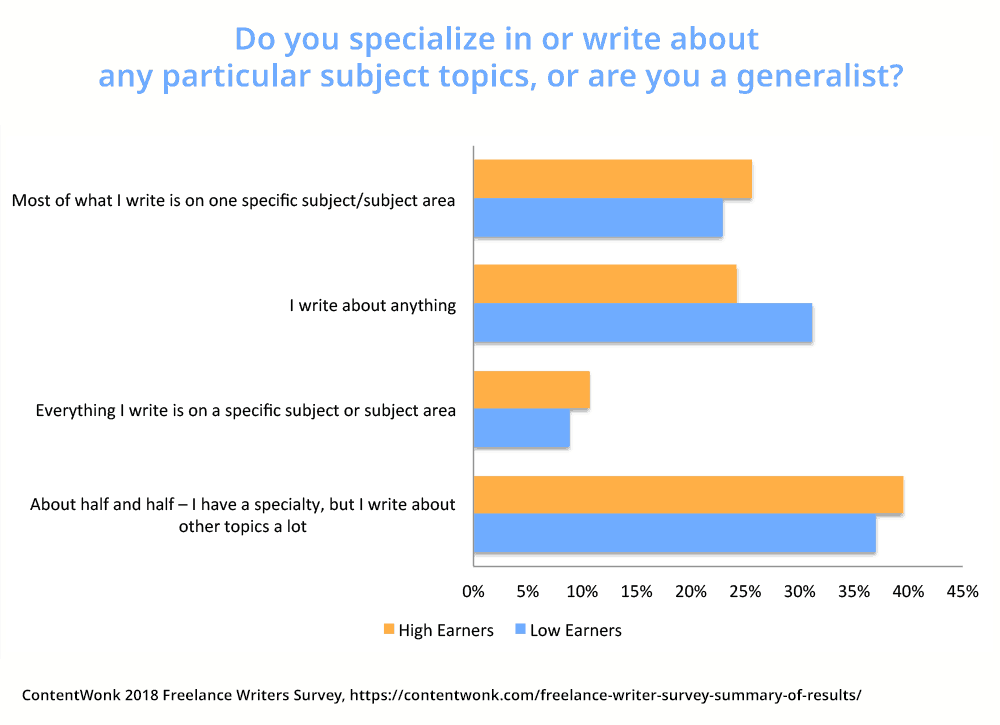
Do take note that low earners are about 30% more likely to write about anything than high earners do. But that’s hardly an earthquake in the data.
5. Making your deadlines doesn’t make that much of a difference.
Got a point of pride about always making your deadlines? That’s great, but it’s probably not having much of an affect on your income.
There is no difference between high earners and low earners when it comes to keeping deadlines.
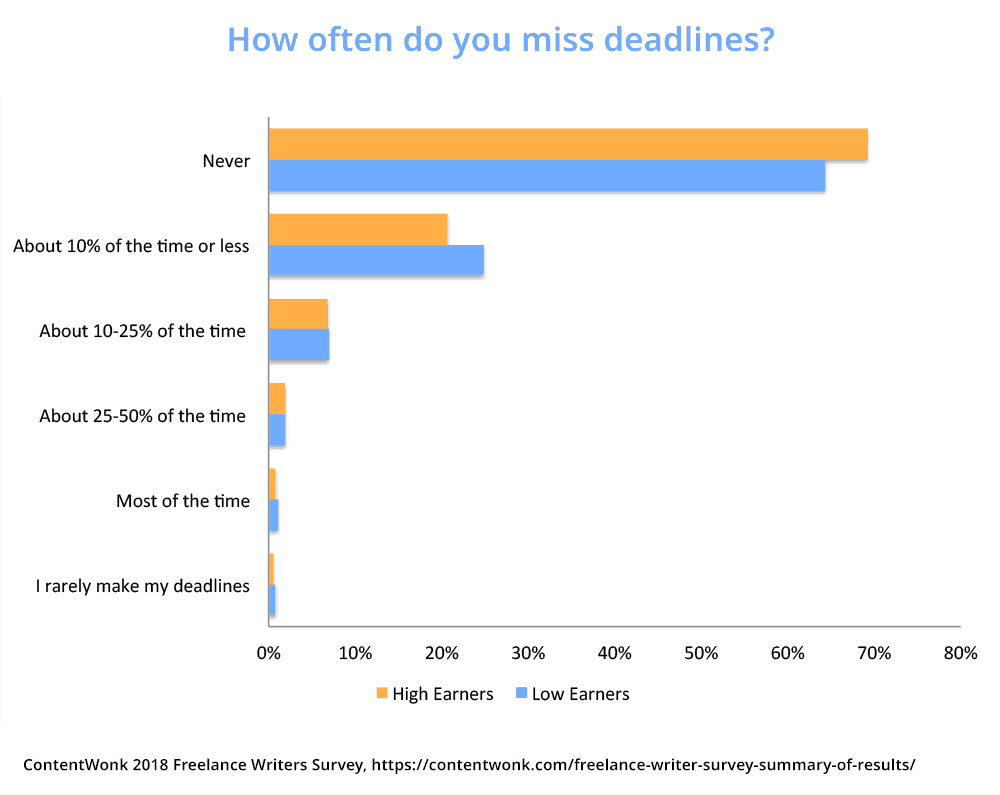
6. Having a huge social media audience doesn’t affect what you earn, either.
High earners are more likely to have larger social media audiences – particularly if that audience is between 5,000 and 10,000 followers. And low earners are more likely to have less than 1,000 followers.
But while there are differences, this data does not show that just having a big social media audience is going to result in you earning more work.
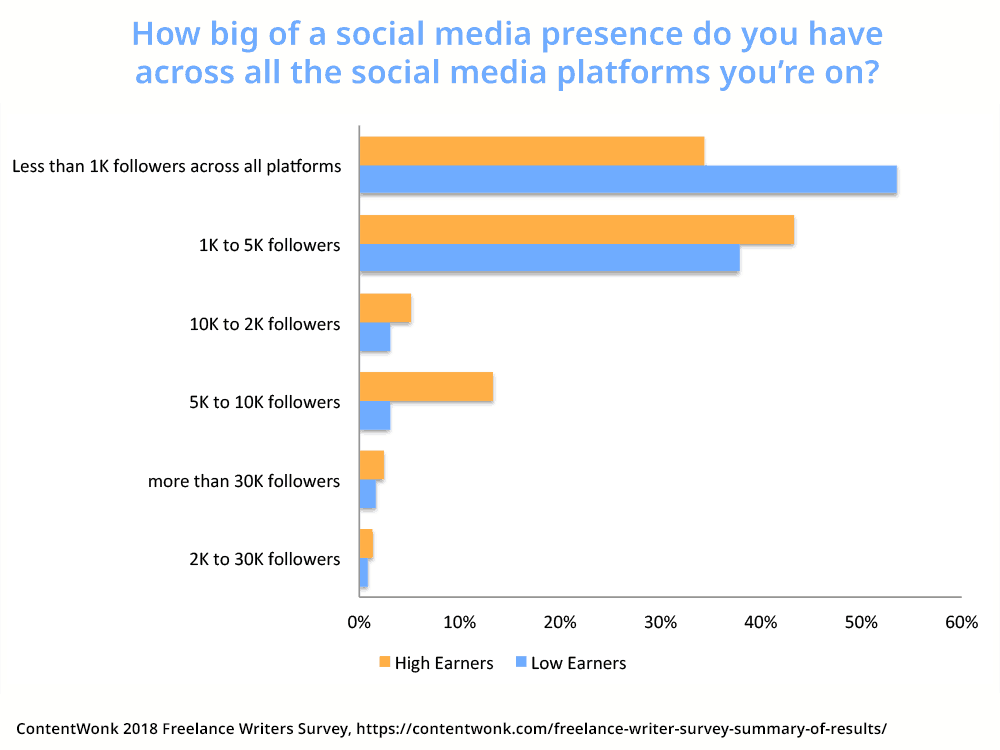
One thing to note here: Remember how writers got lots of work from their networks? That is an asset you might want to grow. And social media can be a good way to begin to develop a network. So don’t ignore social media entirely, be careful about investing too much time it in. It’s the quality of your connections, not the quantity, that lands good work.
7. Whether you promote your content or not doesn’t appear to matter, either.
If freelance writers are supposed to get paid in part by how well their work does, and that performance is measured in social shares… wouldn’t promoting your work mean you’d earn better pay?
Nope.
In my own freelancing business, I do promote my work, and I had assumed I was earning a bit more because of that. Clients have told me they appreciate it. But there just isn’t any major difference in earnings between the writers who say they promote their work and those who don’t.
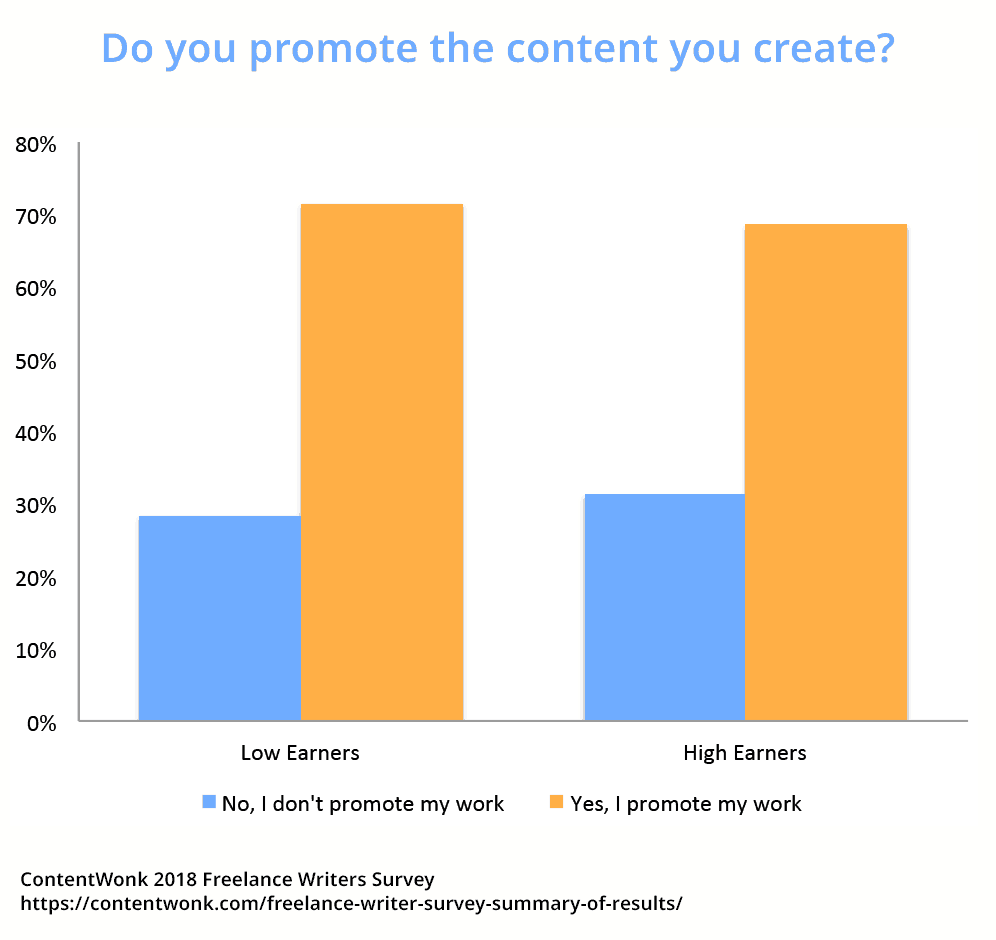
Key takeaways from the freelance writers survey
Want to be in the high earners group? Then here’s what you need to do:
- Get recurring work. Nothing is more likely to win you a living wage than recurring work.
- Work directly with companies of 50 employees or more. Consider working with agencies, too.
- Have five or more years experience as a freelance writer. I know – this is not great news for those of you starting out.
- Avoid being a part-time freelancer. The data shows that freelancers who write less than 8 hours a week are about three times as likely to be in the low earner group. Then, between 8 and 20 hours a week, there’s no real difference between low and high earners. But once you pass 20 hours a week or more of actual writing per week, you become three to five times as likely to be a high earner.
- Get more client referrals. High earners are twice a likely to get referrals than lower earners.
- Build your network. As with almost any profession, the old saying that “your network is your net worth” is true.
- Publish on platforms like Medium or LinkedIn. Higher earners are almost twice as likely to say they get work through these places.
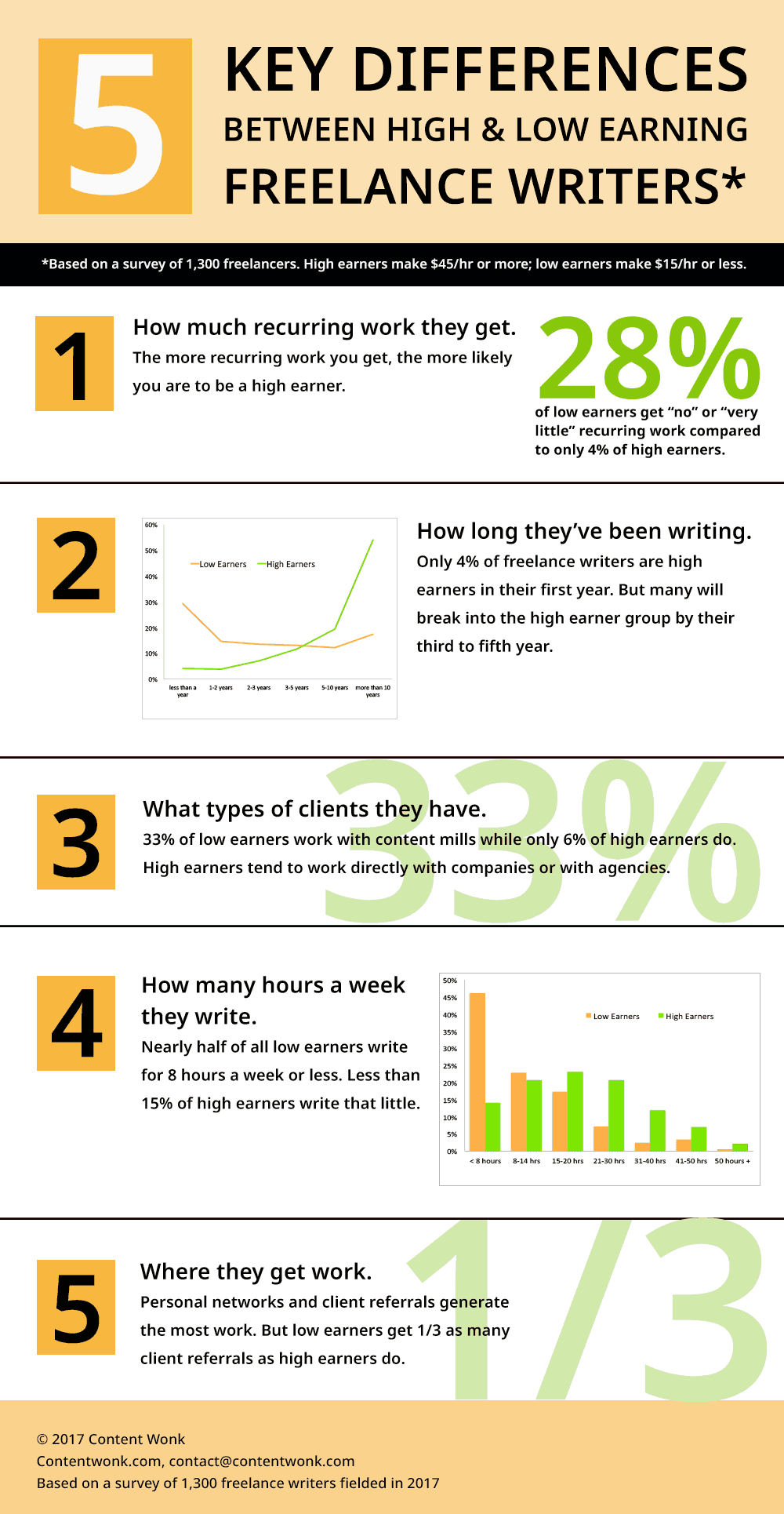

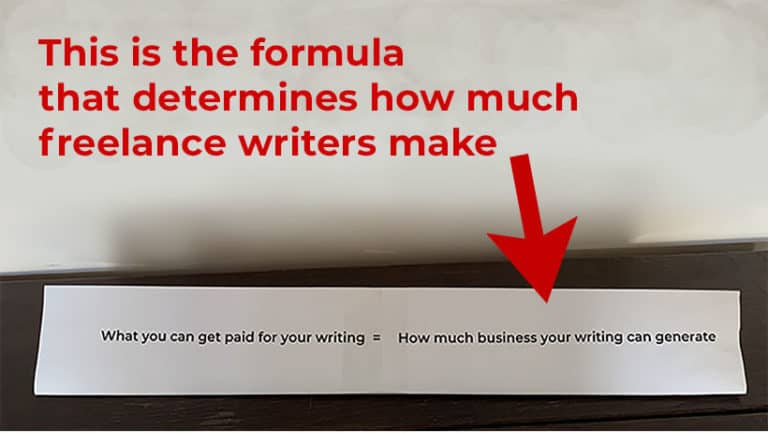




Best article I’ve read in a very long time. Thank you